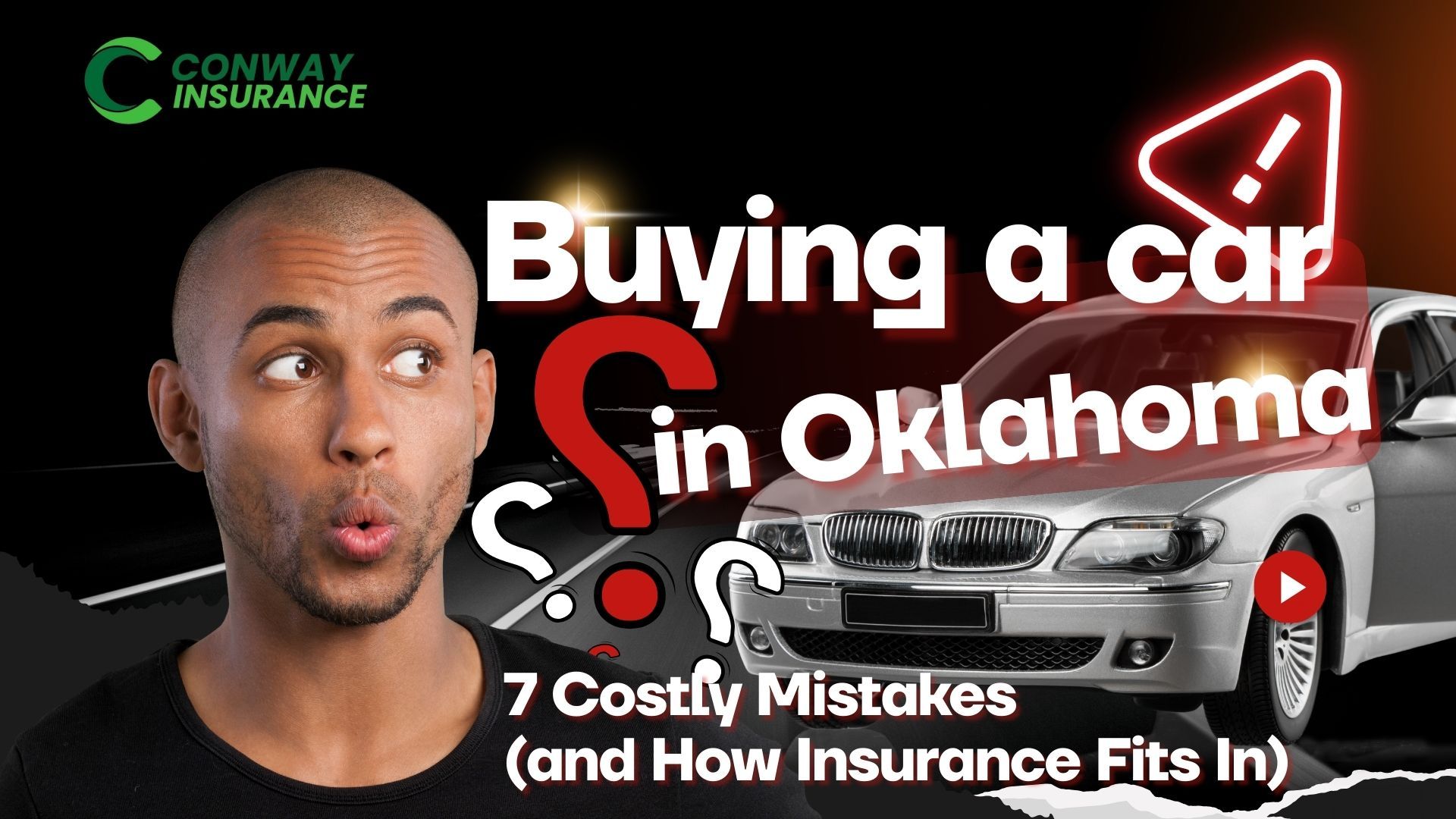Oklahoma Contractors' Guide to Compliance and Protection: Essential Insurance and Bonds
Steven Conway • December 29, 2024
Oklahoma Contractors' Guide to Compliance and Protection: Essential Insurance and Bonds

Oklahoma contractors must be insured and bonded in order to maintain legal compliance, financial protection, and client trust. Oklahoma Industry Board requires licensed contractors to carry certain insurance policies and bonds. Besides these essentials, you can also protect your business and reputation with additional types of coverage.
Contractors in Oklahoma are required to carry insurance
For contractors to operate legally and protect their clients, employees, and business assets, Oklahoma law requires them to carry specific types of insurance. Oklahoma Industry Board mandates the following insurance policies:
1. Liability insurance
All contractors in Oklahoma must carry general liability insurance. The policy covers injuries, property damage, and legal expenses resulting from accidents on the job. In the event that contractors cause harm to someone or damage property during the course of their work, this policy covers them.
2. Compensation insurance for workers
Workers' compensation insurance must be carried by contractors with employees. If an employee is injured or ill at work, this insurance will cover medical benefits and wage replacement. Fines and legal consequences can result from failing to carry workers' compensation insurance.
3. Insurance for vehicles
Automobile insurance is required if you or your employees use vehicles for business purposes, such as transporting materials. You must have this coverage to protect your vehicles from accidents and to ensure that any third-party property damage or injury is covered.
Contractors may wish to carry additional insurance
To ensure comprehensive coverage, licensed contractors should consider several additional types of insurance policies in addition to those mandated by the Oklahoma Industry Board. Included are:
1. Professional Liability Insurance
Consultants, engineers, and designers need errors and omissions insurance to protect themselves. In the event of errors, omissions, or professional negligence, your work is protected.
2. Insurance for commercial property
In order to protect your business assets, such as office space, tools, equipment, and inventory, you must purchase commercial property insurance. If your property is damaged by fire, theft, or natural disaster, you will be covered.
3. Insurance for builders' risks
Builder's risk insurance covers construction projects in progress. Damage to the structure during construction caused by fire, vandalism, or weather-related events is covered by this policy.
4. Insurance for equipment and tools
Contractors need coverage in case their tools and equipment are damaged, lost, or stolen. In the event of an unexpected event, equipment and tool insurance will minimize downtime and financial loss.
Oklahoma Contractors' Mandatory Bonds
Oklahoma contractors are often required to have bonds in addition to insurance. These bonds may either be mandatory by the State of Oklahoma or contractor’s client and contract, or both. Bonds ensure compliance with state regulations and contractual obligations by the contractor and compliance.
Type of Bonds:
1. Contractor's license bond
A contractor's license bond is required by the state as part of the licensing process. The bond ensures that contractors abide by Oklahoma's building codes, regulations, and laws. When a contractor fails to meet their obligations or causes harm in the course of their work, it provides a safeguard for clients.
2. Bond for performance
Performance bonds are often required from contractors for large and public projects. In addition, it ensures the contractor will complete the work on time and in accordance with the contract. As a result of this bond, the client is guaranteed compensation if the contractor fails to meet these requirements.
3. Payment Bond
A payment bond ensures that subcontractors and suppliers are paid for their work on public projects. This prevents contractors from being held liable for any unpaid bills or liens placed against the project due to unpaid debts.
4. Supply Bond
A supply bond ensures that contractors will provide all necessary materials for a project. In the event that the contractor fails to deliver the necessary supplies or fails to meet their contractual obligations, this bond protects owners and developers.
5. Local Bonds
Ensure the contractor abides by local regulations and obtains all necessary permits.
6. Bid Bonds
A bid bond is issued as part of a supply bidding process by the contractor to the project owner, to provide guarantee, that the winning bidder will undertake the contract under the terms at which they bid. The bond penalty is subject to full or partial forfeiture if the winning contractor fails to either execute the contract or provide the required performance and/or payment bonds.
Contractors in Oklahoma must not only comply with state-mandated insurance and bonding requirements to operate legally but also contractually. For additional protection, contractors should also consider additional policies and bonds in addition to those recommended by the Oklahoma Industry Board and/or by contract. The right insurance and bonding are crucial to minimizing risk, regardless of how long you've been in business.
Please note that the information provided in this article is intended for general informational purposes only and may not apply to your specific situation. Insurance laws and regulations can vary significantly from state to state, and it’s crucial to understand the specific requirements and coverages that apply to your location. We strongly recommend consulting with a licensed insurance agent in your state to discuss your unique needs and ensure you have the appropriate coverage for your circumstances.
Recent posts

Auto insurance discounts can feel like Bigfoot — everyone talks about them, and if you’ve spent time in Broken Bow or Hochatown, you know some folks swear they’ve seen one. But actually finding a discount that applies to you? That’s another story. At Conway Insurance, we help Oklahomans cut through the gimmicks and find the discounts that are real, practical, and can actually lower your bill. Whether you’re in Oklahoma City, Edmond, Norman, Midwest City, Tulsa, or down in Broken Bow, here’s what you need to know about saving money without sacrificing protection. If you’re looking for affordable auto insurance in Oklahoma without cutting corners, you’re in the right place. TL;DR – Quick Guide to Oklahoma Auto Insurance Discounts Looking for affordable auto insurance in Oklahoma without cutting coverage? Here are the biggest ways Oklahomans save: 🎓 Good Student – Teens/college drivers with B average or better. 🚗 Multi-Car & Multi-Policy – Biggest savings for families, bundles, or renters + auto. 📱 Safe Driver / Telematics – Drive safely, get rewarded (Progressive Snapshot, GEICO DriveEasy). 💻 Auto-Draft & Paperless – Small but easy savings for e-sign and autopay. 🛡️ Loyalty & Continuous Coverage – Stick with your carrier, avoid lapses, earn better pricing. 🏠 Bundle with Renters/Home – Even a small renters policy can drop your auto rates. 🎖️ Military Discounts – Available with carriers like GEICO for active, retired, Guard/Reserve. 🧾 Defensive Driving & Driver’s Ed – Great for teens, mature drivers, or ticket clean-up. ⚡ Bonus Discounts – Hybrid/EV, early renewal, prior carrier, professional group credits. 👉 Not all discounts apply to all drivers; eligibility varies by carrier and may change at renewal. We’ll shop Progressive, GEICO, Safeco, Mercury, NatGen, and more to find what fits you. Why Discounts Get Confusing Carriers love to advertise “up to 20% savings,” but here’s the fine print: not every discount applies to every driver. That’s why one person leaves smiling, while another wonders why their rate didn’t budge. And let’s be honest — it’s frustrating when you see ads promising huge savings, but your own quote barely changes. Sound familiar? As an independent agency, Conway Insurance shops Progressive, GEICO, and other trusted carriers to match you with the discounts you actually qualify for — no false promises.

You’ve driven up to a car dealership in Edmond, Norman, Tulsa, or one of the hundreds across Oklahoma for a test drive — fallen in love with the leather seats, the new-car smell, and the salesperson’s “today-only deal.” You’ve convinced yourself the monthly payment isn’t that bad. You know the look — that “today-only deal” grin. Then come the tag fees… and that insurance quote you didn’t see coming. Buying a car isn’t just about the test drive and financing; it’s about understanding the hidden costs that follow you home — like insurance. 🧾 TL;DR – Quick Guide 🚘 Buying a car in Oklahoma? Avoid these seven mistakes: ❌ Don’t skip VIN checks ❌ Don’t rely on minimum coverage 💬 Quote your insurance before signing 🛡️ Protect yourself with GAP and comprehensive coverage 📋 Review your policy afterward 🤝 Keep your agent in the loop — small details prevent big problems 🧭 Oklahoma Quick Facts • 13% of Oklahoma drivers are uninsured • State minimum liability: 25/50/25 — meaning $25,000 per person, $50,000 per accident for bodily injury, and $25,000 for property damage • Average new vehicle cost: $48,000 • Average Oklahoma tag & title fees: $300–$600 per vehicle 💡 Translation: A single crash involving a newer SUV could exceed the state’s minimum property-damage limit instantly.
